Want to meet owls, hawks and a bald eagle? Check out Raptor Weekend in Bristol
BRISTOL — Hawks, and owls, and falcons, oh my! The Audubon Society of Rhode Island will be the scene of a kettle of raptors from all over New England the weekend of Sept. 10 and 11.
The annual Audubon Raptor Weekend event will include demonstrations from raptor rehabilitators, presentations and family activities for birders of all ages. Raptor Weekend presents a special opportunity for visitors to get up close with many species and learn about their adaptations and habitats.
The admission cost also provides access to the Audubon Nature Center & Aquarium and its 28-acre wildlife refuge, including aquarium exhibits, the scenic boardwalk to Narragansett Bay, and the Palmieri Pollinator Garden.
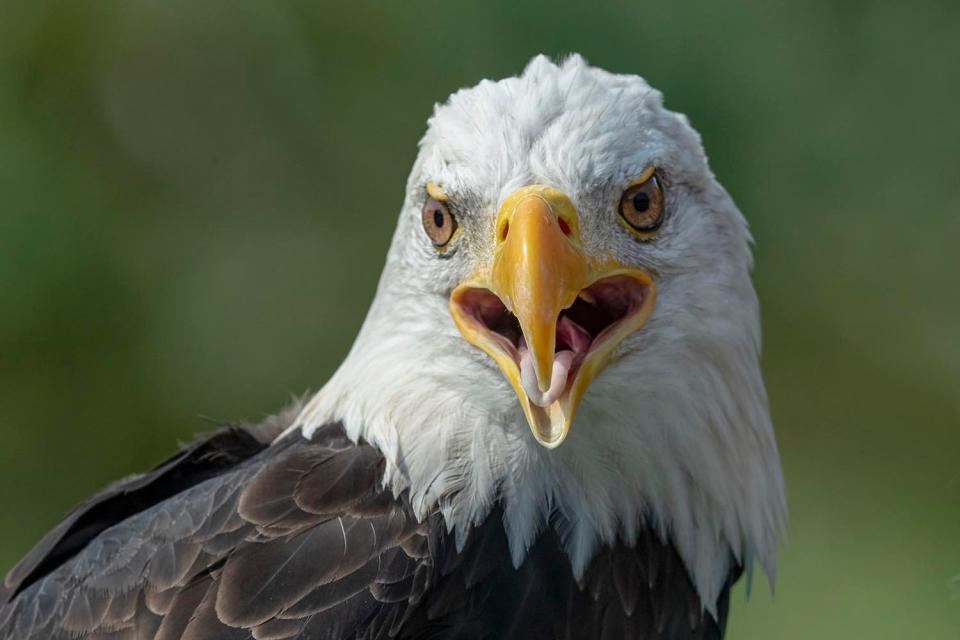
Seahorses, giant whale skulls and more: Come see what's new at Audubon Nature Center
Want to find raptors in their own environment? Grab a pair of binoculars and look for these commonly seen species. Lauren Parmelee, senior director of education programs at Audubon, offers some insights on the role these birds play in the ecosystem.
Red-tailed hawk:
If you’re driving down Route 95 and see a large bird perched on a light pole, you’re probably seeing a red-tailed hawk. This is a football-shaped raptor with (you guessed it) a cinnamon-red tail, along with stripes on its breast. The red tail is the most common hawk in North America, often feeding on rodents and the occasional snake. Its preferred hunting method is to perch in high, open places, then to drop down to grab its prey.
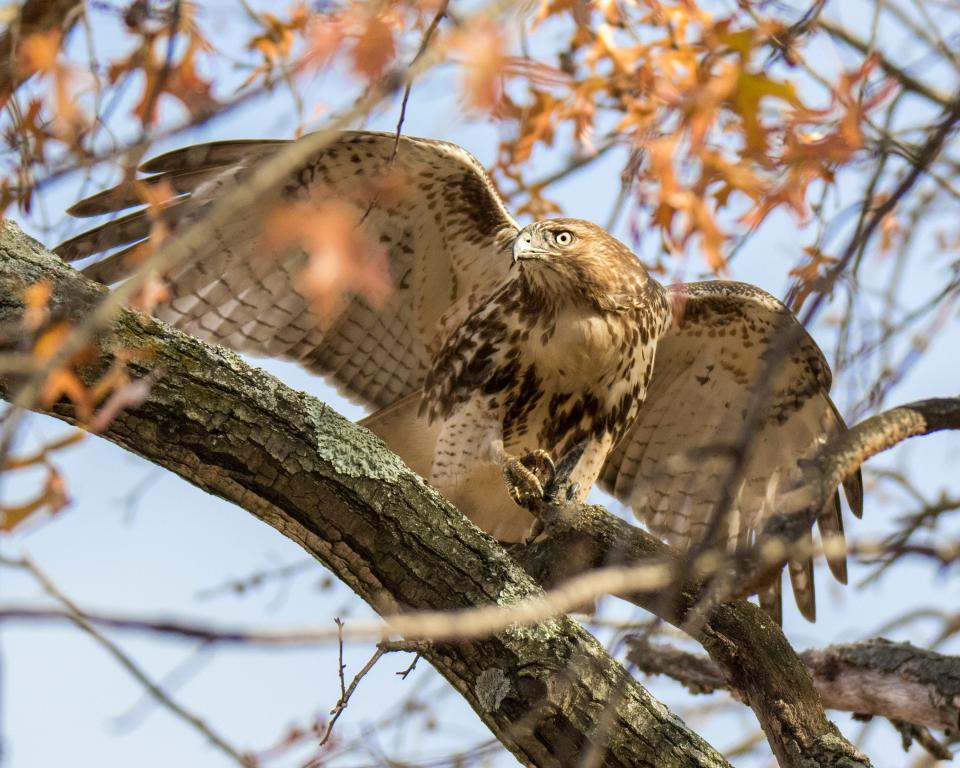
Parmelee said red-tailed hawks are breeders in Rhode Island, and they're here year-round. They help maintain the ecosystem by their predation on rodents, rabbits and other animals. They keep those populations from going out of control, which she said is important to maintain balance in the food web.
Bird tales: Wildlife clinic returns bald eagle to the wild, rescues entangled owl from tree
Cooper's hawk:
This raptor’s preferred meal is other birds. You can distinguish it from other species by its long, narrow tail that allows it to make rapid course changes as it dashes through the woods after its prey. They will come to backyard bird feeders (especially in winter) to grab an avian meal. If your crowded feeder is suddenly deserted, take a look around the nearby trees: It could well be hiding a cooper's.
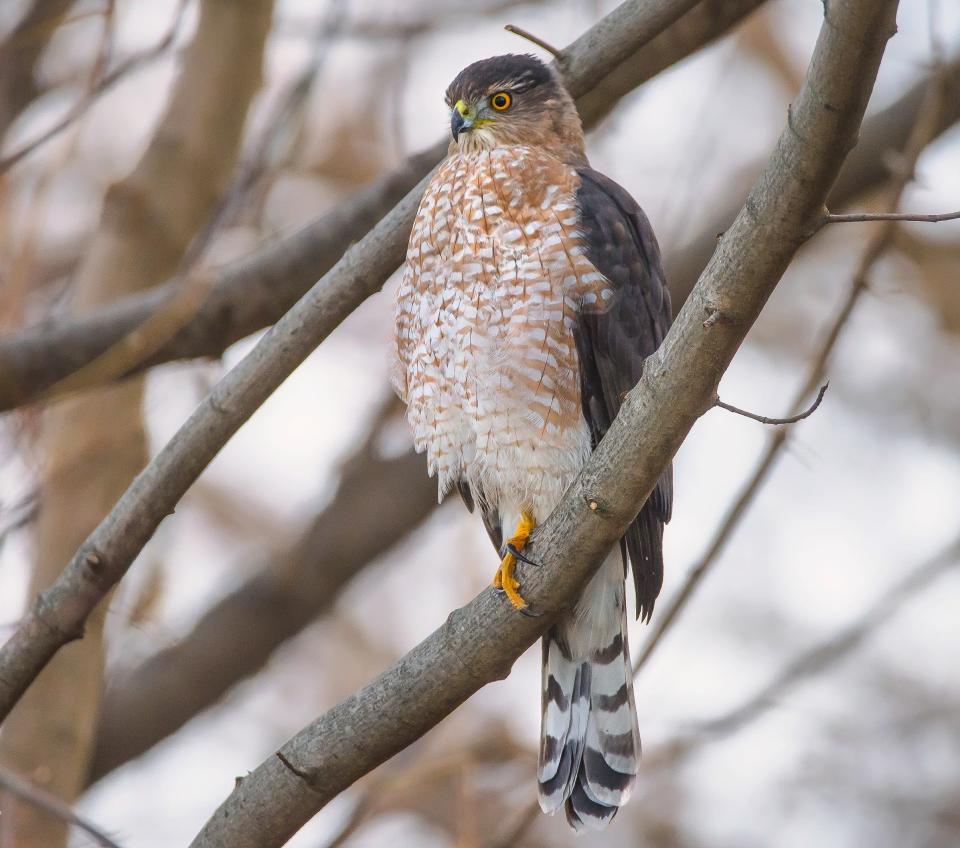
Cooper’s hawks keep the songbird populations under control, according to Parmelee. They’ll come picking off your house sparrows, house finches and other small birds at the feeder. She said they're just doing what's natural: maintaining their health by preying on birds.
Northern harrier:
Making a trip to open fields or marshlands will be worth your while to visit this raptor. It hunts small rodents with a “low and slow” flight over its territory, making it easy to identify. Unlike most raptors, the harrier will fly as low as 6 to 10 feet above the ground, providing excellent binocular views. It has a distinctly shaped head, with small facial disks that allow it to listen for its prey moving through the grasses.
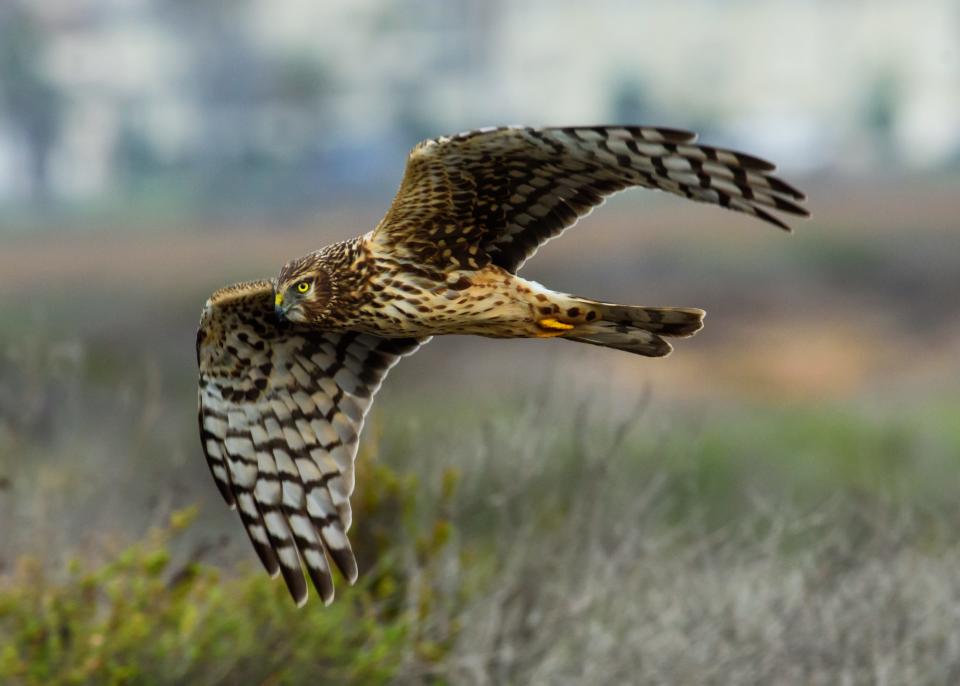
Parmelee said the Northern harrier is a bird that migrates through Rhode Island and can be seen on a regular basis in fall and winter. They, too, eat rodents and songbirds that are found in fields and marshes. So again, those predators are maintaining the population by feeding on small animals and birds.
RI Audubon Society's wildlife educator Lauren Parmelee is a force of nature
Barred owl:
This is a common owl, sometimes seen in the day as well as its usual haunts at night. The round face and striped body distinguish it from other owls, such as the great horned owl. Another way to know you’re hearing a barred owl is their distinctive “who-cooks-for-you, who-cooks-for-YOU-ALL" call that can be heard at night.
From bald eagles to salt marsh sparrows: RI's Bird Atlas tells us about important changes
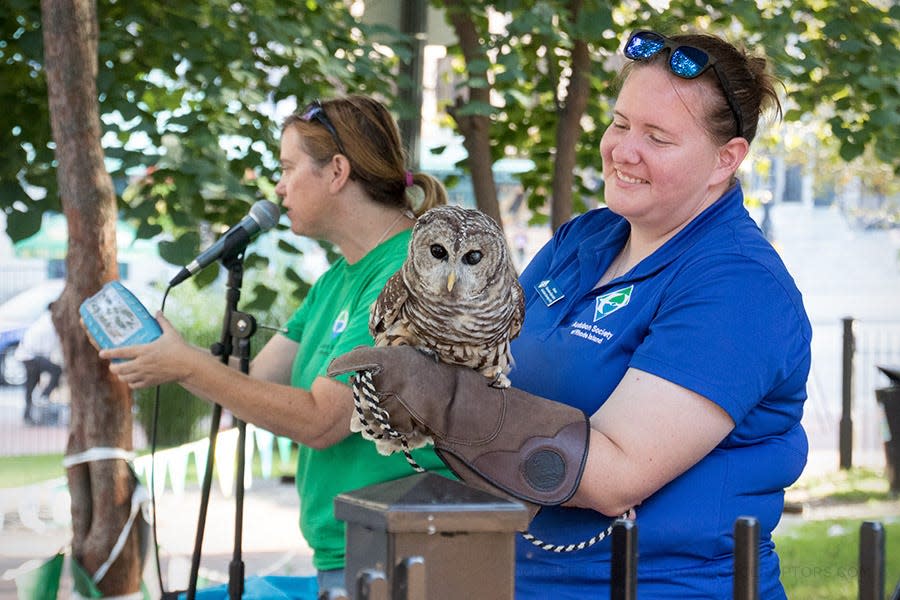
The barred owl is more of a woodland species, Parmelee said. They certainly hunt over fields, but they tend to live in swampy woodland, so they will eat things such as rodents and rabbits, as well as preying on the snakes and frogs found in swampy woods. They're filling in as a different predator in different habitat, she said.
Gifts for nature lovers: Great ideas from RI Audubon for outdoor exploring or indoor enjoyment
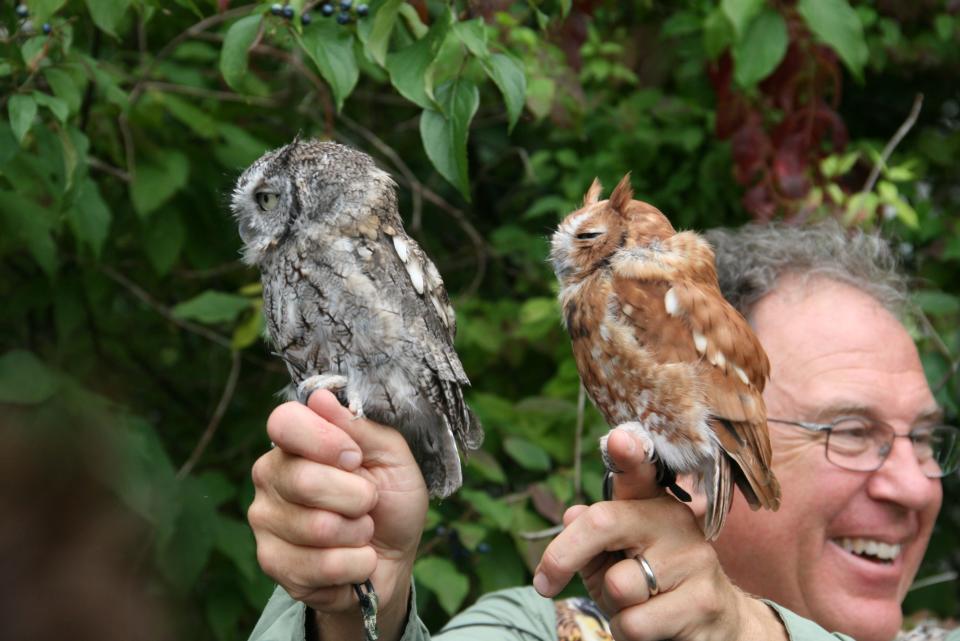
There are so many other raptors out there waiting for you to discover. So once Raptor Weekend is over, join a bird club, buy a bird guide, get some binoculars, and get outside!
If you go ...
What: Raptor Weekend
Where: Audubon Nature Center & Aquarium, 1401 Hope St., Bristol
When: Sept. 10-11, 10 a.m.-4 p.m.
Tickets: $17 adults; $12 children ages 4-12; children 3 and younger free. Tickets can be purchased in advance or at the door.
Info: asri.org/raptor-weekend
This article originally appeared on The Providence Journal: Bristol's Audubon Society of Rhode Island hosts 2022 Raptor Weekend

